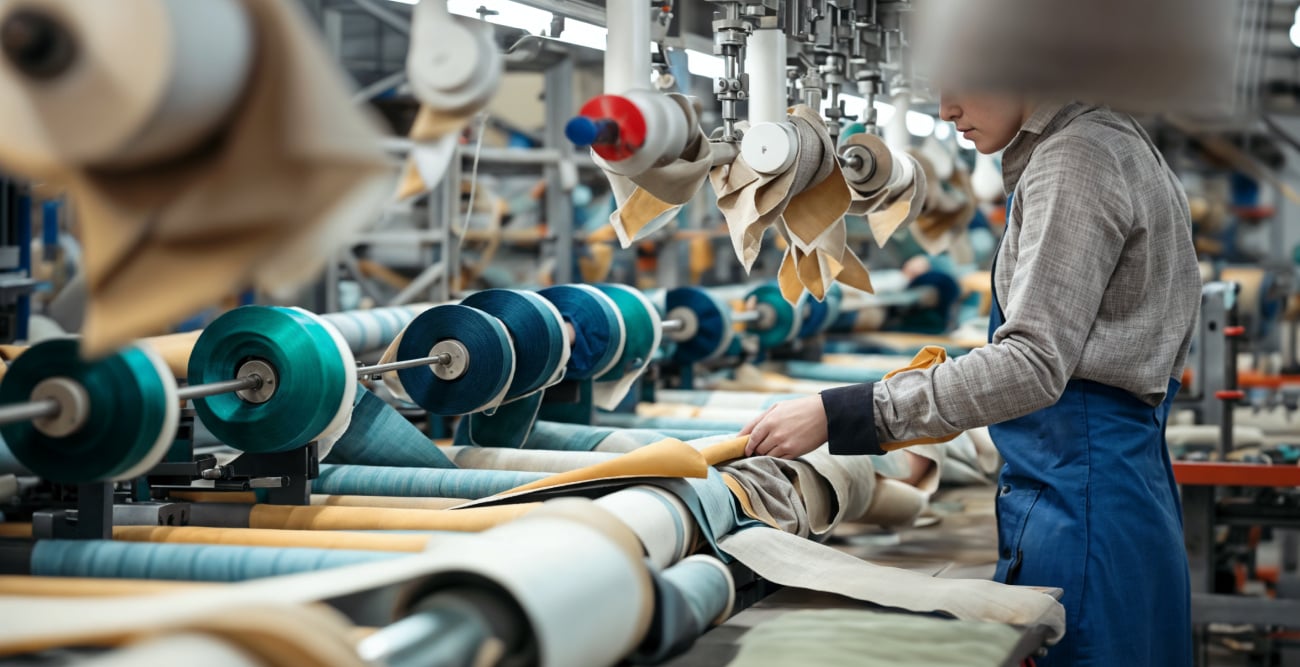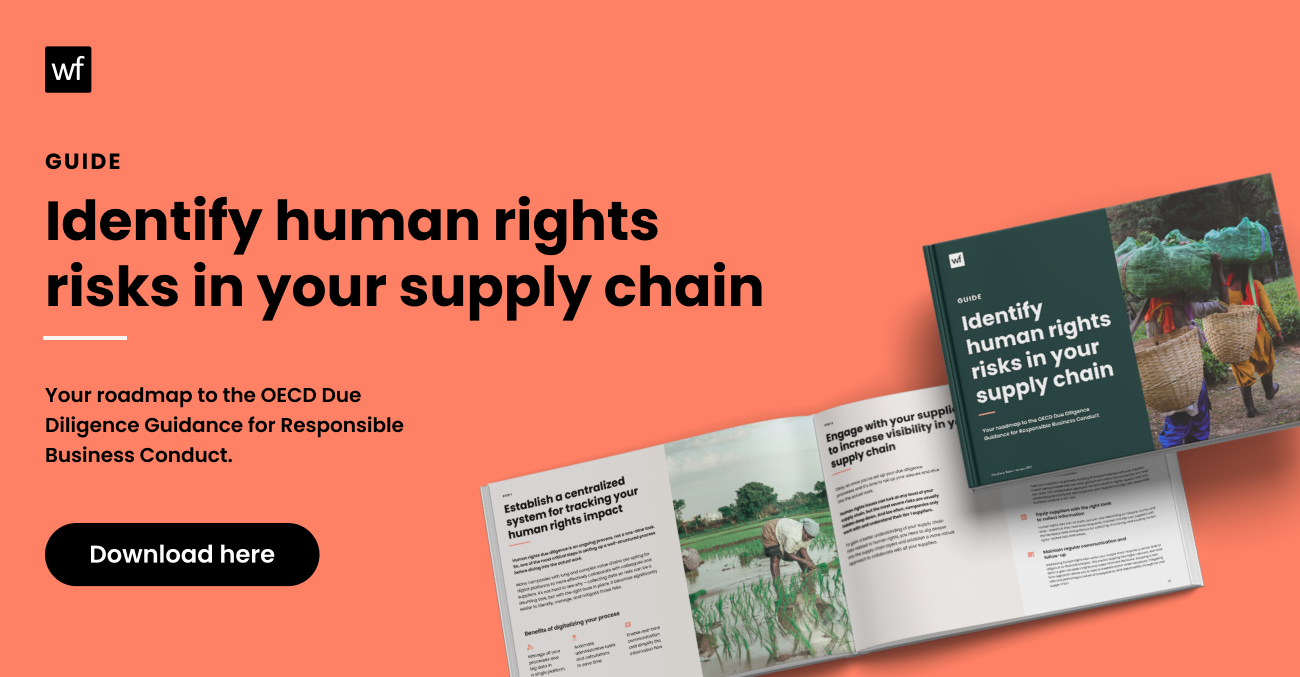EU bans products made with forced labor: what it means for your company
In March 2024, the EU reached a provisional agreement on banning products made with forced labor. Starting mid-2027, this ban will require companies of all sizes and sectors to conduct human rights due diligence and risk assessments on their supply chains.

Updated: June 2024
Forced labor is rarely intentional; it's often a result of companies not prioritizing labor rights in their supply chain management. Thankfully, this is about to change.
In March 2024, the European Commission made a historic move by agreeing on the most comprehensive ban ever proposed for products made with forced labor.
The ban, expected to take effect in mid-2027, will require companies selling in the EU to set up a supply chain due diligence process and risk management assessment. The goal? Bring an end to human rights abuses linked to product creation.
What do we know about the EU’s ban on products made with forced labor?
- It will be consistent with and built on existing EU policies and international standards to avoid double reporting.
- If forced labor is found in the supply chain, the relevant product can be withdrawn from the EU market and online marketplaces.
- Companies that don't comply can be fined.
What companies are covered?
Unlike many other similar laws, such as the Corporate Sustainability Due Diligence Directive, the EU ban on products made of forced labor covers all products, including counterparts, regardless of size and sector. It will cover any step of the product’s value chain, including production, manufacture, harvest, and extraction.
This means that if your company sells or exports any products from the EU market, you'll need to comply with the requirements.
SMEs specific guidelines and requirements are coming
As mentioned above, the ban will also cover small and medium-sized enterprises (SMEs) and micro enterprises, which is quite unique for these kinds of regulations. However, their requirements will be adjusted and adapted to suit their characteristics and capabilities.
The Commission is expected to issue guidelines on due diligence concerning forced labor, which will consider SMEs' size and economic resources.
Industries at higher risk of forced labor
The regulation will neither target any specific industry nor country, as forced labor can happen anywhere. Of course, some industries and countries are at higher risk. Service sectors, such as textiles, mining, and agriculture, are among those in which forced labor has been reported frequently. Companies in these sectors will be expected to follow sector-specific guidelines.
What happens if a company doesn’t comply?
- If forced labor is found at any point in the supply chain, the product can’t be sold on the EU market.
- If the product is already on the market, the responsible company will be required to withdraw it immediately from the market, as well as dispose of the product to ensure it won’t be resold or utilized illegally. The responsible company will bear the entire cost of the disposal of the prohibited product, which the Commission sees as a strong deterrent for companies to comply.
- Businesses that fail to comply with the measures mentioned above will face penalties under the relevant national law.
What will companies need to do?
To comply with the EU's ban on products made of forced labor, companies need to review and strengthen their due diligence and risk management strategies. This includes understanding the labor practices of a product's entire journey—from origin to market.
Setting up a due diligence and risk assessment process can be challenging and time-consuming, especially for companies with multi-tiered global supply chains. However, with the right tools and systems in place, it can be much more manageable.
Use Worldfavor to improve your due diligence and risk assessment
Track your supply chain's ESG performance, access real data from suppliers, and conduct automated risk assessments—all in one intuitive tool.
Why Worldfavor?
- Trace your products' journey from raw material to shelf
-
Suppliers share data for free
-
Stay compliant with the EU ban on products made with forced labor, CSDDD, and other legal frameworks
- Identify ESG risks, including labor rights, before they become a problem
Related blog posts you might like:
- Why is Human Rights Due Diligence important for businesses?
- Are you ready for the EU's CSDD directive? (CSDDD)
- The complete list of national Human Rights Due Diligence laws – who’s affected and how to comply







%20as%20the%20deadline%20approaches.%20Learn%20about%20compliance%20requirements%2c%20potential%20delays%2c%20and%20key%20updates..png)

